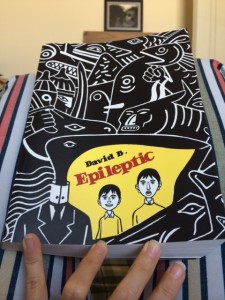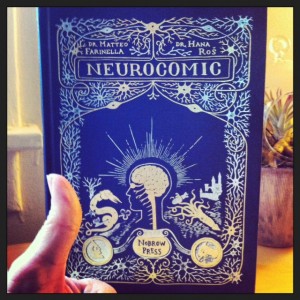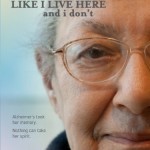Another Book That I Liked. Epileptic.
June 19th, 2014Epileptic is a beautifully rich graphic novel that probably everyone has already heard about, except me. I didn’t know anything about it until my boyfriend pointed it out on a shelf at the bookstore. It seemed right up my alley, theme and content wise. So, in a caffeinated bout of spending mania, I grabbed it.
Let’s just say, it was so much more than I expected. After I finished, I wanted to sit there holding it. Feeling its weight like an obvious metaphor. The book that this man (and his family) created is dark, heady, and self-aware in the most engaging ways. It follows the family by way of the narrator/author/artist, through a life of dealing with his brother’s severe epilepsy. It was so intimate and lovely, without being overly sweet or precious. Dare I say, it was just so, French.
The emotional pace of the storytelling was even, not manipulative or even cathartic really, but always tumbling along with the images. Every once and a while a panel would be so right that I would actually have to stop and stay on it. Like holding my breath. I can’t help but think they were intended for exactly that purpose, but that also other people might have stopped at different panels. You know that super art feeling of like, that is exactly right! That is EXACTLY RIGHT! But then you have your friend look at it and they are like “That’s nice. Oooh, look over there!”
A few seemingly random themes are only random at first because they are so specific to the family in the book. They all go together because it is a real life. Even if I wasn’t sure how exactly one would subject would relate to the other, I knew it would. And it was nice to be led deeply down one path to discover another.
The drawings, to the non art student eye, were an almost wood block or etching style, black and white, clean lines, folk art yet still in the cartoon realm. The perfectly placed monsters of disease, death and life’s nagging truths are embraced as friends, beautiful scary friends. There is so much to look at but I never felt like I lost the story. I would love to see a puppet theatre production of this book.
Epileptic is full of facts although not brain science, or epilepsy research, which is sort of what I wanted. If I had done a bit more research before I started, the French title may have changed my original preconceived notions “L’Ascension du haut mal (“The Rise of the High Evil”). But, I did not miss the hard science because everything was so well done. So what if it wasn’t what I expected? It was something profoundly moving. It was something really fucking great.
I will give it a Benedict Cumberbatch rating. It was prettier than me, smarter than me, and I’d like to look at it over and over again.



